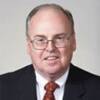 Cart
(0)
Sign In
Cart
(0)
Sign In
Fundamentals of Demand Planning & Forecasting Workshop with an FP&A Perspective
This workshop will provide practical
tips to incorporate into your own organization, where you’ll learn
to leverage the cutting-edge of analytics technology. We will focus
on data science applications for forecasting and best practices.
Recent advances in forecasting, often called Predictive Analytics
techniques, involve the use of Big Data, including analysis of
textual data like that created by social media (Facebook etc.). This
½ day masterclass will be especially helpful for demand planners and
forecasters looking to implement the latest advancements and
next-level techniques.
ROLE OF FORECASTING IN THE ORGANIZATION
- Benefits and its impact on management decisions, financial performance, supply chain, financial plans, and company budgets
- Responsibilities/accountabilities of individuals involved
- Reaching consensus and getting executive buy-in
- How forecasting relates to business planning, financial management processes, and other business decisions
- Cross-functional participation and the risk of bias in forecasts
DATA MANAGEMENT AND DATA CLEANING
- Data identification and definition
- Structure of time series data and its impact on revenue, inventory, inventory turns, and related accounting reserves, e.g. sales returns, safety stock, and excess and obsolete inventory write-offs
- Data collection and analysis
- Identifying and adjusting for anomalies and outliers
FORECAST ERROR MEASUREMENT
- Importance of error measurement and analysis – financial and non-financial
- Sources and remediation of error
- Interpretation and application of error metrics, and their relationship to key financial metrics, e.g. return on assets, gross margins, balance sheet metrics, and EBITDA
- Mean Absolute % Error (MAPE)
- Weighted Mean Absolute % Error (WMAPE)
- Error analysis and contributing factors, and cost of error and its effects on revenue and profit
HOW TO FORECAST WITH TIMES SERIES MODELS –The most widely used method of short-term forecasting
- Importance of pattern identification and variation
- Time series model identification and development
- When to use time series models
- Advantages and disadvantages of time series methods
- Event adjustments and when to use them
- Underlying assumptions and impacts on department and company financial performance – P&L and balance sheet
- Widely used time series methods – averages, naïve model, exponential smoothing, decomposition, trend, seasonal, and other time series methods
REGRESSION ANALYTICS – Longer-term forecasting and evaluating business drivers and causes of variation in demand.
- An overview of Regression Analysis and its applications
- Advantages and disadvantages
- Application in estimating effects of promotions, pricing, advertising, and other program actions which affect revenue streams, profitability and EBITDA
NEW PRODUCT FORECASTING – Forecasting over longer time periods with greater unknowns
- Challenges of New Product Forecasting and Financial Hurdle Rates in determining acceptable New Product initiatives
- Product lifecycle structure, estimation, and related financial proforma performance expectations
- Qualitative forecasting methods and uses
- Overview of Quantitative and Qualitative forecasting methods
- Expected error, accuracy, and its impact on the company P&L, Balance Sheet, Financial Ratios, and EBITDA








